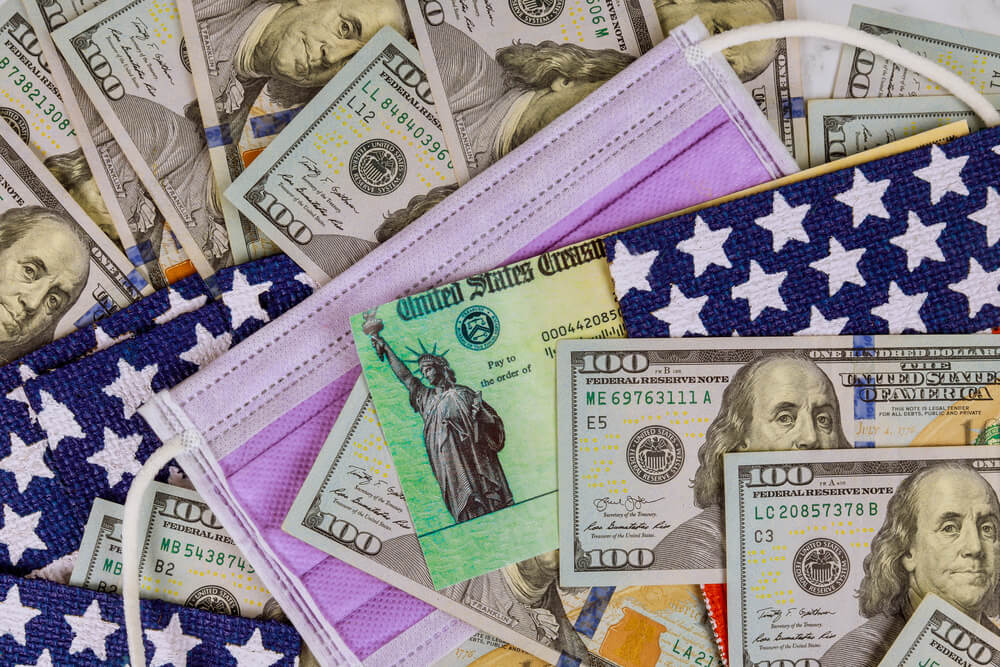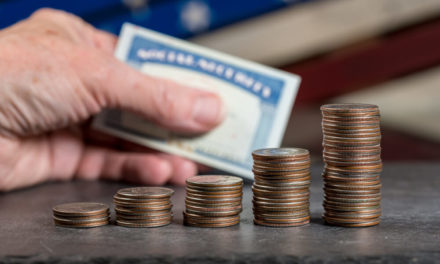The U.S. government has announced direct payments in the form of a coronavirus stimulus check to every eligible American as the economy grinds to a halt during the pandemic, but a lot of questions remain surrounding the money doled out as part of the Coronavirus Aid, Relief, and Economic Security Act.
After much debate, Congress and President Donald Trump signed off on a massive $2.2 trillion aid package Friday, and part of the deal was direct payments of up to $1,200 for single taxpayers with an adjusted gross income of $75,000 or less. Joint filers are eligible for $2,400 with an AGI of $150,000 or less.
The amount paid out goes down by $5 for every $100 more you make over $75,000, up to a $99,000 cap for single filers or $198,000 for joint filers.
Families with children under 17 listed as dependents also qualify for $500 per child.
So let’s get into some of the biggest questions surrounding the coronavirus stimulus checks.
Coronavirus Stimulus Check FAQ
What Tax Return Will Be Used?
The AGI from either your 2019 or 2018 tax return will be used to calculate your government stimulus check. If you haven’t filed 2019’s tax return quite yet, your 2018 return will be used.
If for some reason you didn’t file taxes for 2018 or 2019, the Internal Revenue Service guidance from March 30 says you should file immediately and be sure to include direct deposit information so your payment can be sent without issue.
The biggest roadblock here is if you use 2018’s tax return and ended up making a lot more money in 2019, particularly over the thresholds where your coronavirus relief aid would start to decrease by $5 every $100 you made.
What if I don’t File Taxes Normally?
Many may not file taxes on a yearly basis. This includes anyone receiving Social Security, low-income tax payers, some veterans or individuals with disabilities.
The good thing to know is if you don’t file taxes normally, you are still eligible for the government stimulus check.
“Some seniors and others who typically do not file returns will need to submit a simple tax return to receive the stimulus payment,” IRS guidance notes.
The IRS will update www.IRS.gov/coronavirus with information on “how to file a 2019 tax return with simple but necessary information including filing status, number of dependents and direct deposit bank account information.”
We’ll be sure to provide an update on Money & Markets once the process for obtaining a coronavirus stimulus check if you don’t file taxes normally becomes more clear.
Is the Coronavirus Stimulus Check Taxable?
The stimulus checks are not taxable, according to TaxSlayer. You could end up having to pay back a portion of the credit if your income in 2020 is above the threshold, though.
What if I’m not Eligible Based on Income in 2018 or 2019, but Could Be in 2020?
 Many people may have been in better financial situations in the past two years than they are now after the COVID-19 outbreak has caused businesses across the country to close their doors or greatly reduce output.
Many people may have been in better financial situations in the past two years than they are now after the COVID-19 outbreak has caused businesses across the country to close their doors or greatly reduce output.
If you fall into this category, you may receive a stimulus check, but it won’t come until after you file your 2020 tax return in 2021.
The Treasury Department could change its tune by allowing people to prove their income will be lower, but we’ll have to wait and see.
“My hope is they provide a way for individuals who did not qualify based on previous income, but do qualify in 2020 to get their money sooner and not wait until next spring,” National Taxpayers Union Foundation VP Nicole Kaeding told CNBC.
How Long Will it Take to Receive My Coronavirus Stimulus Check?
The Treasury says anyone who has direct deposit information on file with the IRS should receive a coronavirus stimulus check electronically within three weeks.
The government is also creating an online portal for anyone who is eligible to receive payment but doesn’t have direct deposit information on file. It would allow those individuals to submit their banking information securely to receive the direct deposit.
Hopefully this answered some of the questions you may have had about your coronavirus stimulus check.
Let us know if you have any other questions regarding the checks in the comments below and we’ll see if we can find an answer for you.




